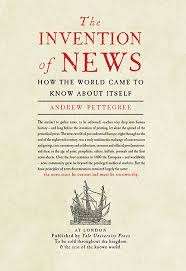The Invention of News: How the World Came to Know About Itself

Editorial Yale University Press
Fecha de edición diciembre 2014 · Edición nº 1
Idioma inglés
EAN 9780300212761
Libro
encuadernado en tapa blanda
Resumen del libro
Long before the invention of printing, let alone the availability of a daily newspaper, people desired to be informed. In the pre-industrial era news was gathered and shared through conversation and gossip, civic ceremony, celebration, sermons, and proclamations. The age of print brought pamphlets, edicts, ballads, journals, and the first news-sheets, expanding the news community from local to worldwide.
This groundbreaking book tracks the history of news in ten countries over the course of four centuries. It evaluates the unexpected variety of ways in which information was transmitted in the premodern world as well as the impact of expanding news media on contemporary events and the lives of an ever-more-informed public. Andrew Pettegree investigates who controlled the news and who reported it; the use of news as a tool of political protest and religious reform; issues of privacy and titillation; the persistent need for news to be current and journalists trustworthy; and people's changed sense of themselves as they experienced newly opened windows on the world.
By the close of the eighteenth century, Pettegree concludes, transmission of news had become so efficient and widespread that European citizens--now aware of wars, revolutions, crime, disasters, scandals, and other events--were poised to emerge as actors in the great events unfolding around them.
Biografía del autor
Andrew Pettegree (Reino Unido, 1957) es catedrático de Historia Moderna en la Universidad de St Andrews. Coautor de Bibliotecas: una historia frágil (Capitán Swing, 2024) y autor de las premiadas obras The Book in the Renaissance y The Invention of News . Pettegree ha contribuido profundamente a la historiografía de la comunicación y el libro; además, fue vicepresidente de la Royal Historical Society y es el fundador del Universal Short Title Catalogue .








